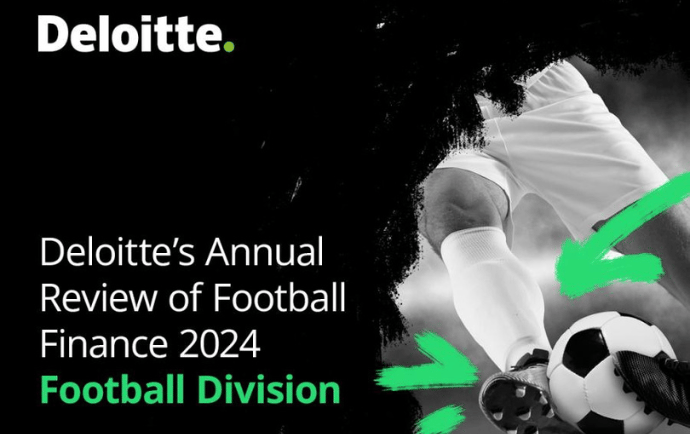Deloitte Football Finance 2025: Growth and Considerations
This article breaks down the latest trends in football finance, exploring how revenue growth is reshaping the game across Europe. It highlights the challenges clubs face in balancing profitability with competitiveness in an increasingly divided market.
Kyriakos Lyourgos
6/15/20253 min read


Deloitte’s latest Annual Review of Football Finance shows record breaking revenue for European football, hitting €38 billion for the 2023/24 season. The ‘Big Five’ leagues collectively surpassed €20 billion for the first time. The Premier League remains the dominant force, generating £6.3 billion in revenue. With the majority of the revenue coming from commercial growth, while operating profits also had a substantial increase from last year.
At first look, these numbers suggest healthy finances, however do all players play in an even playing field and is the money coming in organically from reliable sources?
Revenue Growth:
First, there is a 8% revenue growth across European Football, which reflects a healthy market.However this revenue is not evenly spread. The Premier League’s commercial revenues breaking the £2 billion ceiling is a significant milestone, however is this a case of the rich getting richer and the other just staying behind?
At the same time, financial regulations do seem to be influencing club behaviour in a positive way. The Premier League’s improved profitability is partly thanks to tighter oversight. This encourages clubs to balance their spending with income more consciously. It can be seen as a slow but steady shift toward sustainability at the top of the pyramid. This of course does not mean that as pressure rises and time goes by , this progress will hold.
Profitability vs. Investment:
Operating profits are rising, which is a good sign. However, the gap between the biggest clubs and the rest keeps on growing. The top clubs that have their own strong commercial teams and multiple sources of income are in a much safer financial position. They can handle and bounce back through tough times more easily. On the other hand, many smaller clubs still depend on selling players or unpredictable TV money just to stay afloat. They need to take much more risks and thus they risk their financial sustainability consistently. It’s becoming harder for clubs outside the elite to be both competitive and financially stable. Finding the right balance between spending to win and keeping the books in order is still a big challenge for most teams. This may mean that clubs could depend on their academies more than ever, that they might need to ‘sacrifice’ some seasons just to balance the books, or that they must build strong teams working behind the scenes, using innovation to stay both relevant and competitive.
Women’s Football:
Women’s football(especially the WSL) saw a huge 34% jump in revenue and it reached £65 million. It’s a clear sign of growing interest and investment. But expectations should remain realistic. Fans, Investors and Media tend to get overexcited on every trending sector or growing franchise. The WSL is still operating on a much smaller financial scale than the men’s game. Moreover, much of its progress depends on a few well-funded clubs and partnerships.
For long-term success, the league needs to grow its audience beyond the current core of supporters and build consistent media presence. They also need to attract fans that follow the sport consistently, boost storytelling and create a fanbase that is mutually exclusive from the men's teams. These are areas that are still developing compared to men’s football.
Final Thoughts
The numbers from Deloitte prove once more that European football is still a big business and it is growing. However the game behind the scenes is complicated and the paths are not always visible to everyone. Short term growth should not be the end goal but how that growth is shared and managed, matters just as much.
Football fans and people interested in the sport’s future should always keep in mind that it’s not just about more money coming in, but about making sure football stays competitive, fair, and financially healthy for all clubs despite the size and origin.
